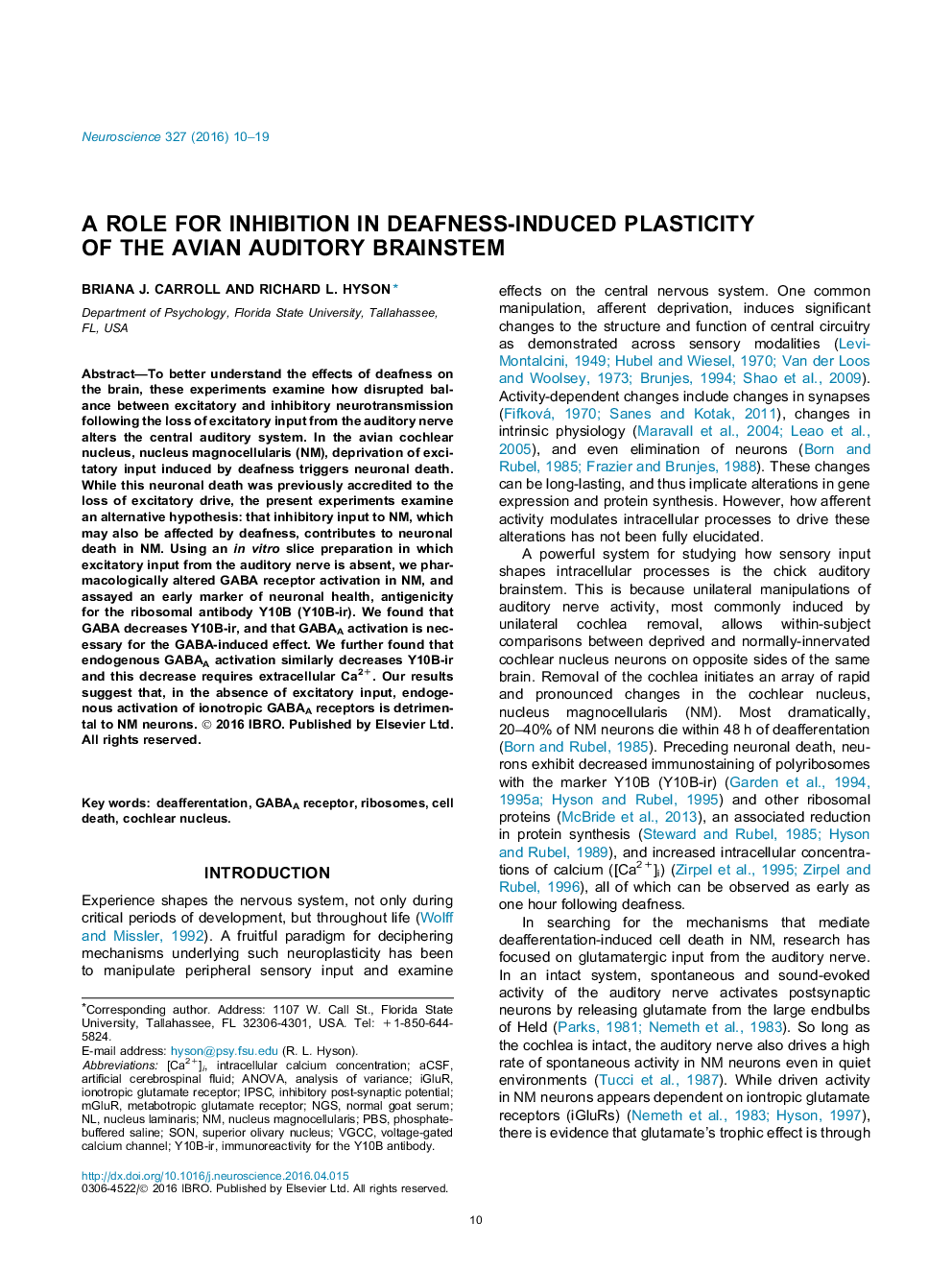| Article ID | Journal | Published Year | Pages | File Type |
|---|---|---|---|---|
| 6271335 | Neuroscience | 2016 | 10 Pages |
â¢Deafness reduces antigenicity for the ribosomal marker Y10B (Y10B-ir) in NM.â¢Exogenous GABA is capable of reducing Y10B-ir, an effect dependent on GABAA.â¢Selective blockade of endogenous GABAA receptors increases Y10B-ir.â¢In the absence of excitation, GABAA activation is detrimental to NM neurons.
To better understand the effects of deafness on the brain, these experiments examine how disrupted balance between excitatory and inhibitory neurotransmission following the loss of excitatory input from the auditory nerve alters the central auditory system. In the avian cochlear nucleus, nucleus magnocellularis (NM), deprivation of excitatory input induced by deafness triggers neuronal death. While this neuronal death was previously accredited to the loss of excitatory drive, the present experiments examine an alternative hypothesis: that inhibitory input to NM, which may also be affected by deafness, contributes to neuronal death in NM. Using an in vitro slice preparation in which excitatory input from the auditory nerve is absent, we pharmacologically altered GABA receptor activation in NM, and assayed an early marker of neuronal health, antigenicity for the ribosomal antibody Y10B (Y10B-ir). We found that GABA decreases Y10B-ir, and that GABAA activation is necessary for the GABA-induced effect. We further found that endogenous GABAA activation similarly decreases Y10B-ir and this decrease requires extracellular Ca2+. Our results suggest that, in the absence of excitatory input, endogenous activation of ionotropic GABAA receptors is detrimental to NM neurons.
